Filter by
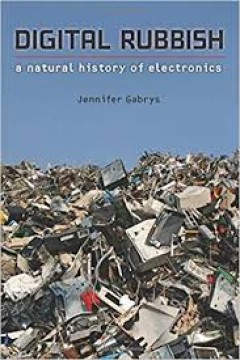
Digital Rubbish: A natural history of electronics
This is a study of the material life of information and its devices; of electronic waste in its physical and electronic incarnations; a cultural and material mapping of the spaces where electronics in the form of both hardware and information accumulate, break down, or are stowed away. Electronic waste occurs not just in the form of discarded computers but also as a scatter of information devic…
- Edition
- -
- ISBN/ISSN
- 9780472035373
- Collation
- -
- Series Title
- -
- Call Number
- 363.7288 GAB d
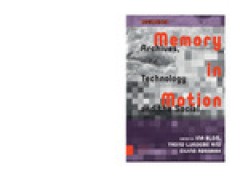
Memory in motion : archives, technology, and the social
How do new media affect the question of social memory? Social memory is usually described as enacted through ritual, language, art, architecture, and institutions ? phenomena whose persistence over time and capacity for a shared storage of the past was set in contrast to fleeting individual memory. But the question of how social memory should be understood in an age of digital computing, instan…
- Edition
- -
- ISBN/ISSN
- 9789048532063
- Collation
- 331 p.
- Series Title
- -
- Call Number
- 302 MEM m
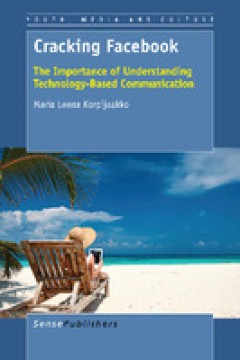
Cracking facebook : the importance of understanding technology-based communic…
This book presents a Facebook study on members of the Cusp Generation, or those born before the “great digital divide” of 1995. This delineation allows for a discussion on the possible socio-cultural implications of Facebook use for people of all ages. Members of the Cusp Generation are in a unique position as “part digital natives” to easily acquire and use new media technologies, whil…
- Edition
- -
- ISBN/ISSN
- 9789463002110
- Collation
- IX, 153 p.
- Series Title
- Youth, Media, and Culture Series
- Call Number
- 370 LEE c
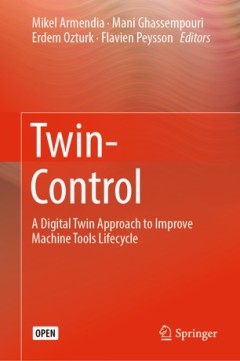
Twin-control : a digital twin approach to improve machine tools lifecycle
This open access book summarizes the results of the European research project “Twin-model based virtual manufacturing for machine tool-process simulation and control” (Twin-Control). The first part reviews the applications of ICTs in machine tools and manufacturing, from a scientific and industrial point of view, and introduces the Twin-Control approach, while Part 2 discusses the developme…
- Edition
- -
- ISBN/ISSN
- 9783030022037
- Collation
- xvi, 296p. : ill.
- Series Title
- -
- Call Number
- 670.285 TWI t
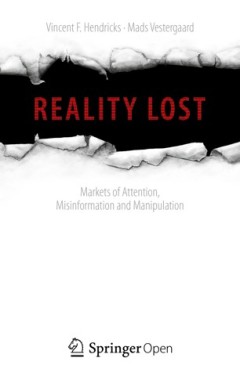
Reality lost : markets of attention, misinformation and manipulation
This open access book looks at how a democracy can devolve into a post-factual state. The media is being flooded by populist narratives, fake news, conspiracy theories and make-believe. Misinformation is turning into a challenge for all of us, whether politicians, journalists, or citizens. In the age of information, attention is a prime asset and may be converted into money, power, and influ…
- Edition
- -
- ISBN/ISSN
- 9783030008130
- Collation
- xxi, 144p. : ill.
- Series Title
- -
- Call Number
- 070.43 HEN r

Digital writing assessment & evaluation
Writing has changed due to the affordances of digital technologies, and writing assessment has changed as well. As writing programs integrate more digital writing work, students, teachers, and administrators face the rewards and challenges of assessing and evaluating multimodal and networked writing projects. Whether classroom-based or program-level; whether in first-year writing, technical com…
- Edition
- -
- ISBN/ISSN
- 9780874219494
- Collation
- -
- Series Title
- -
- Call Number
- 411 DIG d
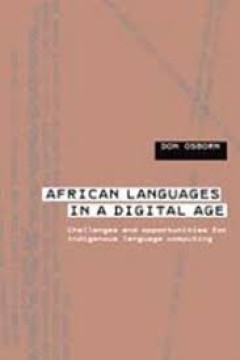
African languages in a digital age: challenges and opportunities for indigen…
With increasing numbers of computers and penetration of the Internet around the world, localization of the technology and the content it carries into the many languages people speak is becoming an ever more important area for discussion and action. Localization, simply put, includes translation and cultural adaptation of user interfaces and software applications, as well as creation and transla…
- Edition
- -
- ISBN/ISSN
- 9781552504734
- Collation
- -
- Series Title
- -
- Call Number
- 496 OSB a
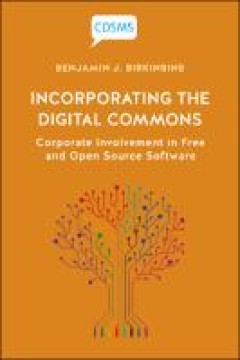
Incorporating the digital commons corporate involvement in free and open sour…
The concept of ‘the commons’ has been used as a framework to understand resources shared by a community rather than a private entity, and it has also inspired social movements working against the enclosure of public goods and resources. One such resource is free (libre) and open source software (FLOSS). FLOSS emerged as an alternative to proprietary software in the 1980s. However, both the …
- Edition
- -
- ISBN/ISSN
- 9781912656431
- Collation
- xiv, 143p.: ill.
- Series Title
- -
- Call Number
- 005.8 BIR i
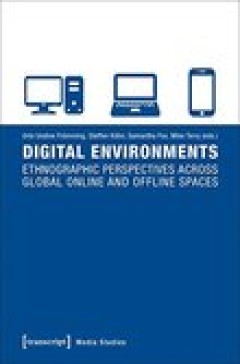
Digital environments : ethnographic perspectives across global online and off…
Digital technology already has permeated the physical world. Devices such as smartphones, tablets or wearables and online venues like virtual worlds and social networks have penetrated every part of our lives. The contributions to this volume apply innovative forms of ethnographic research to the digital realm. They examine the emergence of new online communities around Greenlandic news blogs o…
- Edition
- -
- ISBN/ISSN
- 9783839434970
- Collation
- 267 p.
- Series Title
- -
- Call Number
- 303.4833 DIG d
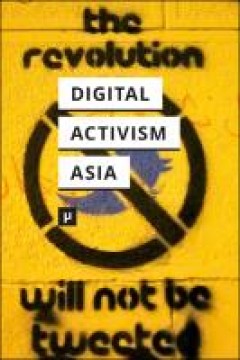
Digital Activism in Asia Reader
The digital turn might as well be marked as an Asian turn. From flash-mobs in Taiwan to feminist mobilisations in India, from hybrid media strategies of Syrian activists to cultural protests in Thailand, we see the emergence of political acts that transform the citizen from being a beneficiary of change to becoming an agent of change. In co-shaping these changes, what the digital shall be used …
- Edition
- -
- ISBN/ISSN
- 9783957960504
- Collation
- 273p.: ill.
- Series Title
- -
- Call Number
- 302.231095 DIG d
 Computer Science, Information & General Works
Computer Science, Information & General Works  Philosophy & Psychology
Philosophy & Psychology  Religion
Religion  Social Sciences
Social Sciences  Language
Language  Pure Science
Pure Science  Applied Sciences
Applied Sciences  Art & Recreation
Art & Recreation  Literature
Literature  History & Geography
History & Geography